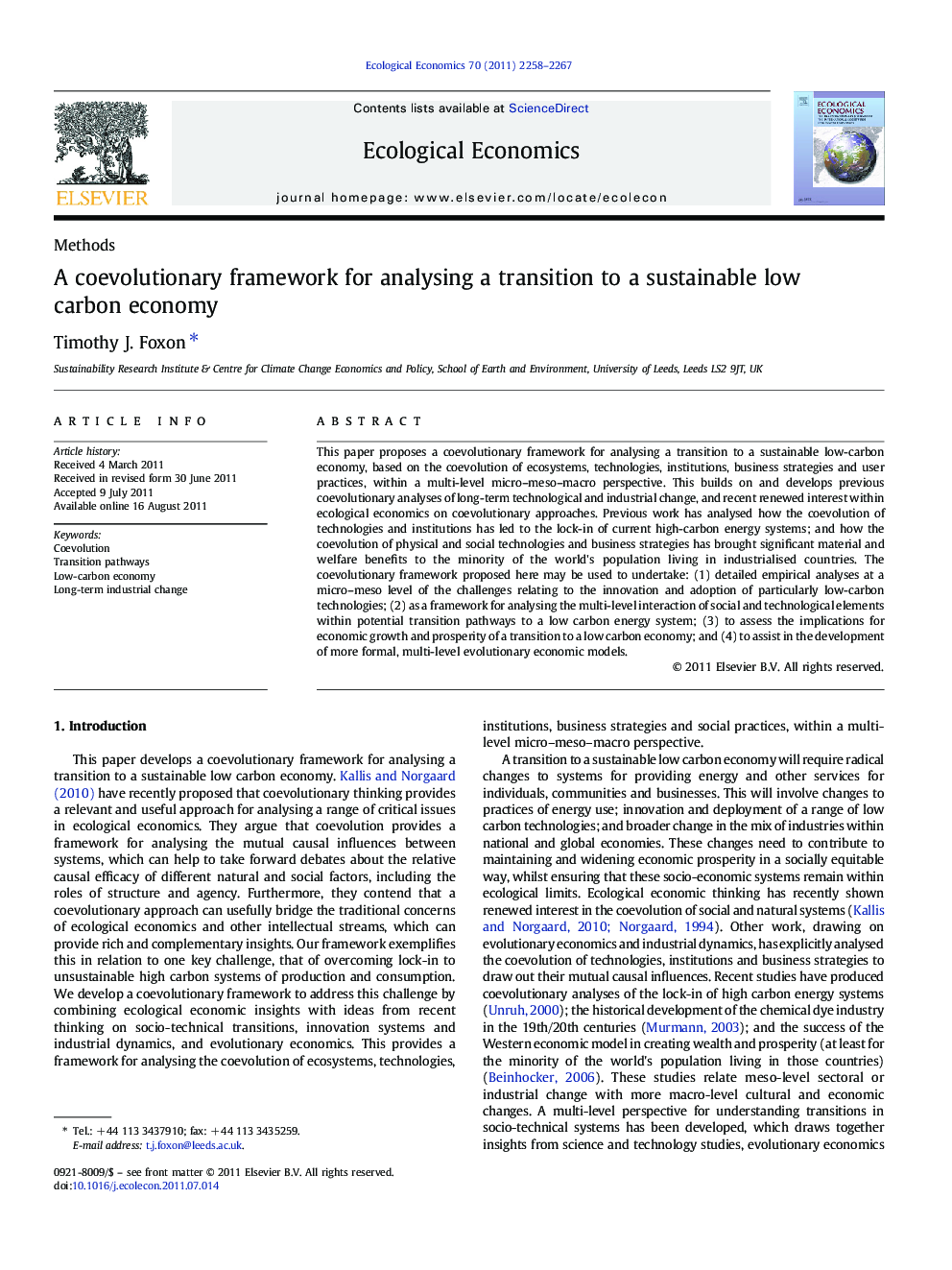| Article ID | Journal | Published Year | Pages | File Type |
|---|---|---|---|---|
| 5050490 | Ecological Economics | 2011 | 10 Pages |
This paper proposes a coevolutionary framework for analysing a transition to a sustainable low-carbon economy, based on the coevolution of ecosystems, technologies, institutions, business strategies and user practices, within a multi-level micro-meso-macro perspective. This builds on and develops previous coevolutionary analyses of long-term technological and industrial change, and recent renewed interest within ecological economics on coevolutionary approaches. Previous work has analysed how the coevolution of technologies and institutions has led to the lock-in of current high-carbon energy systems; and how the coevolution of physical and social technologies and business strategies has brought significant material and welfare benefits to the minority of the world's population living in industrialised countries. The coevolutionary framework proposed here may be used to undertake: (1) detailed empirical analyses at a micro-meso level of the challenges relating to the innovation and adoption of particularly low-carbon technologies; (2) as a framework for analysing the multi-level interaction of social and technological elements within potential transition pathways to a low carbon energy system; (3) to assess the implications for economic growth and prosperity of a transition to a low carbon economy; and (4) to assist in the development of more formal, multi-level evolutionary economic models.
⺠A coevolutionary framework for analysing a transition to a low-carbon economy. ⺠Coevolution of ecosystems, technologies, institutions, strategies and practices. ⺠Overcoming lock-in of current high-carbon energy systems. ⺠Relating evolutionary economic and sociological analyses of systems change. ⺠Implications for economic prosperity of a transition to a low carbon economy.
